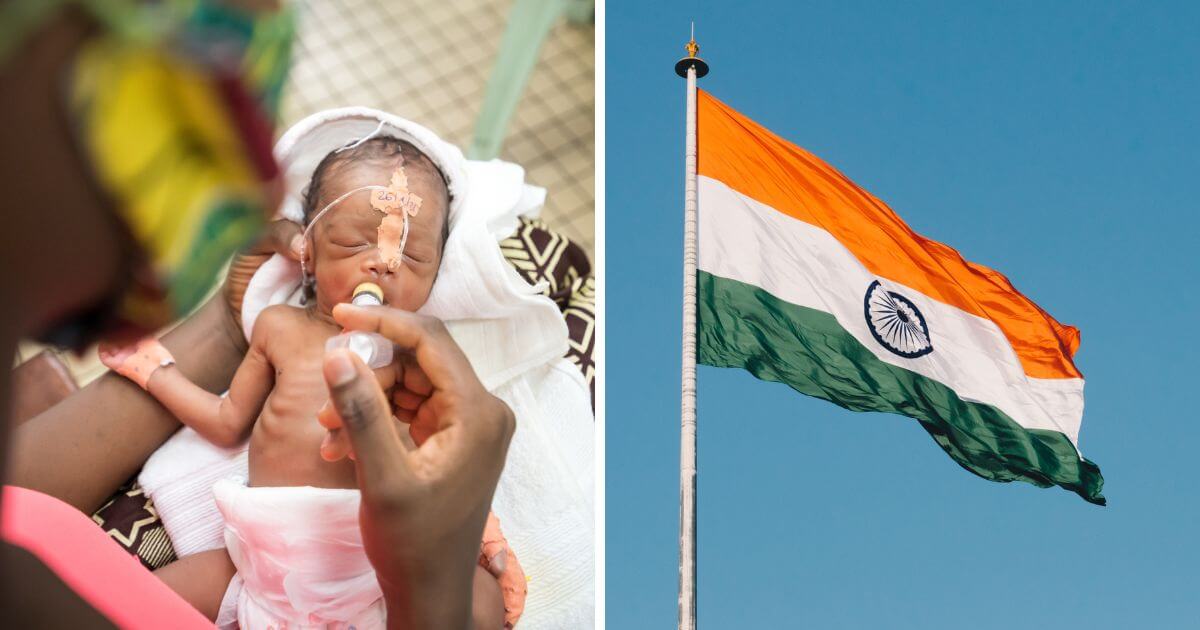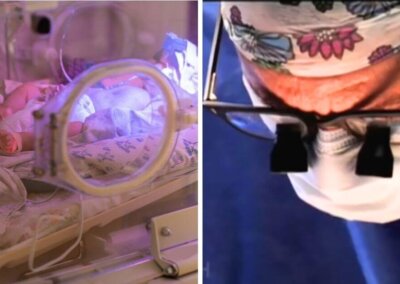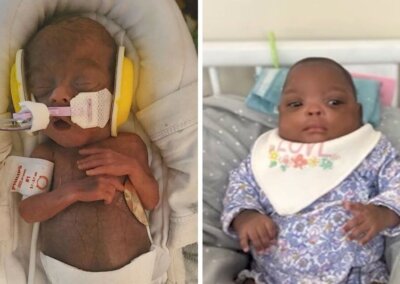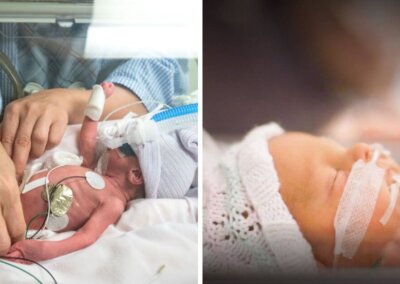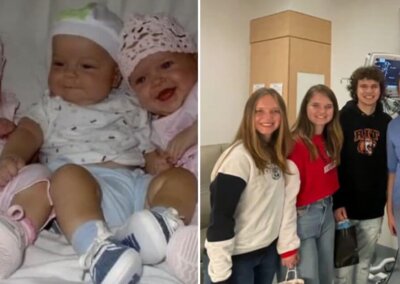A premature baby born described as a “tiny warrior” at just 27 weeks gestation weighing only 770g has defied the odds and made it home.
The baby’s mother, Ritika, was excited about her first pregnancy, but unexpectedly started experiencing serious complications including pregnancy-induced hypertension when she was only six months pregnant. She was admitted to Wockhardt Hospitals in Mumbai at 25 weeks gestation and, because the situation did not improve had to have an emergency caesarean section. Doctors were concerned that her baby was not properly developed but they had no choice.
The newborn weighed just 770 grams at birth and faced multiple medical challenges.
Dr. Nitu Mundhra, Consultant Neonatologist and Pediatrician at Wockhardt Hospitals, Mira Road said, “The baby was too premature to sustain all the organ function properly. Respiratory distress syndrome (RDS) posed an immediate threat, prompting the administration of life-saving surfactant therapy within half an hour of birth”.
Among the challenges faced by this “tiny warrior” were infection, chronic respiratory problems, and necrotizing enterocolitis, a serious illness in which tissues in the intestine become inflamed and start to die. Because the baby was born so prematurely, there were difficulties with feeding too.
Dr Nitu said, “Feeding proved to be a delicate task, with the baby displaying intolerance and setbacks. However, a carefully orchestrated plan allowed for the resumption of feeds, culminating in the successful transition to full oral feeds fortified with essential nutrients”.
The baby was discharged after three months, by which time they weighed around 2kg, able to breathe on room air and feeding normally.
The hospital also provided support for the baby’s mother in a difficult time.
Dr Nitu said, “We [provided] family-centered care under which the mother was actively involved in the baby’s care.[She] was trained in NICU for baby care and Kangaroo care throughout the stay”.
Kangaroo care involves skin-to-skin contact, placing the premature baby on the bare chest of a family member involved in the therapy. The baby is then covered in a blanket to create an incubator-like environment that has the right temperature and is safe and comfortable for the baby. The skin-to-skin contact is long-duration and lasts a few hours.
The kangaroo method is backed by the World Health Organization (WHO), which published a global position paper on the subject earlier this year. The paper outlines the evidence for the practice, showing significant improvement in mortality rates and development of premature babies and babies with low birth weights who are treated with this family therapy.
The baby’s mother expressed her gratitude for the support from the hospital. “From unexpected complications during [labour] to concerns about the baby’s health, it felt like we were facing one hurdle after another. However, I will be forever grateful to the hospital for their swift and expert care, which ultimately led to the successful delivery of my precious baby”.
Medical advancements in the care of premature babies led to the reduction of the abortion limit in 1990.
Originally set at 28 weeks, the abortion limit was lowered in 1990 to 24 weeks gestation because, given our then medical and technological abilities, this was the gestational age at which an unborn baby was considered viable. Since then, however, medical technology has advanced considerably and the survival rates for unborn babies who are born before the 24-week abortion limit have improved dramatically, and babies born below 24 weeks gestation are increasingly able to survive.
A study in 2022 found almost four out of five babies born prematurely between 22 and 28 weeks gestation survive to discharge from the hospital. It found that from 2013 to 2018, with infants born between 22 and 28 weeks gestation, “survival to discharge occurred in 78.3% and was significantly improved compared with a historical rate of 76.0% among infants born in 2008-2012”.
Spokesperson for Right to Life, Catherine Robinson, said “This story is yet another example of a premature baby surviving the odds and fighting for life despite being born so prematurely. Under the original 1967 Abortion Act in the UK, unborn children of 27 weeks could be aborted, but the limit was rightly reduced with the advancements of medical technology. Now we have seen further improvements, it is time the UK Government once again reduces the current abortion limit of 24 weeks”.


